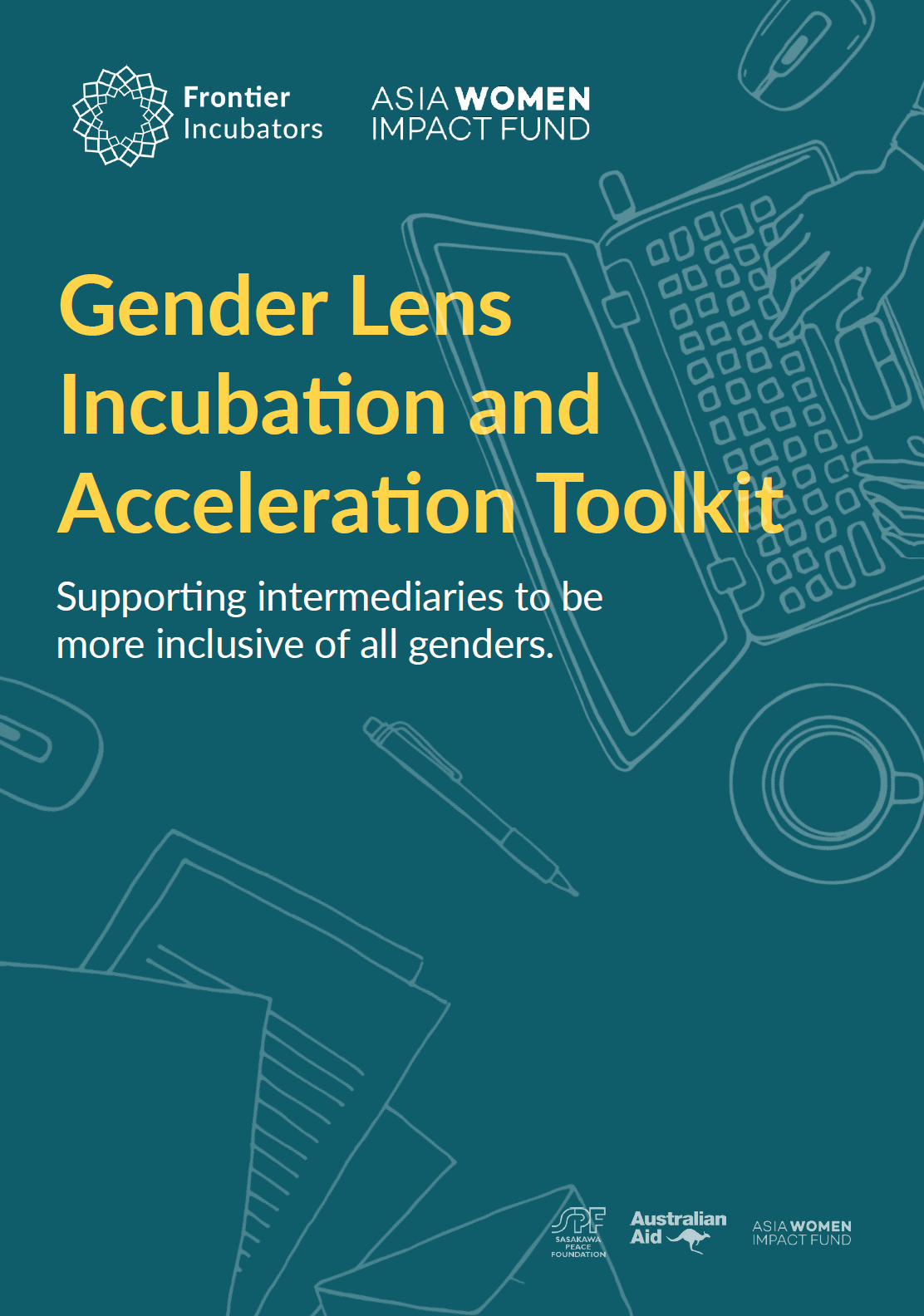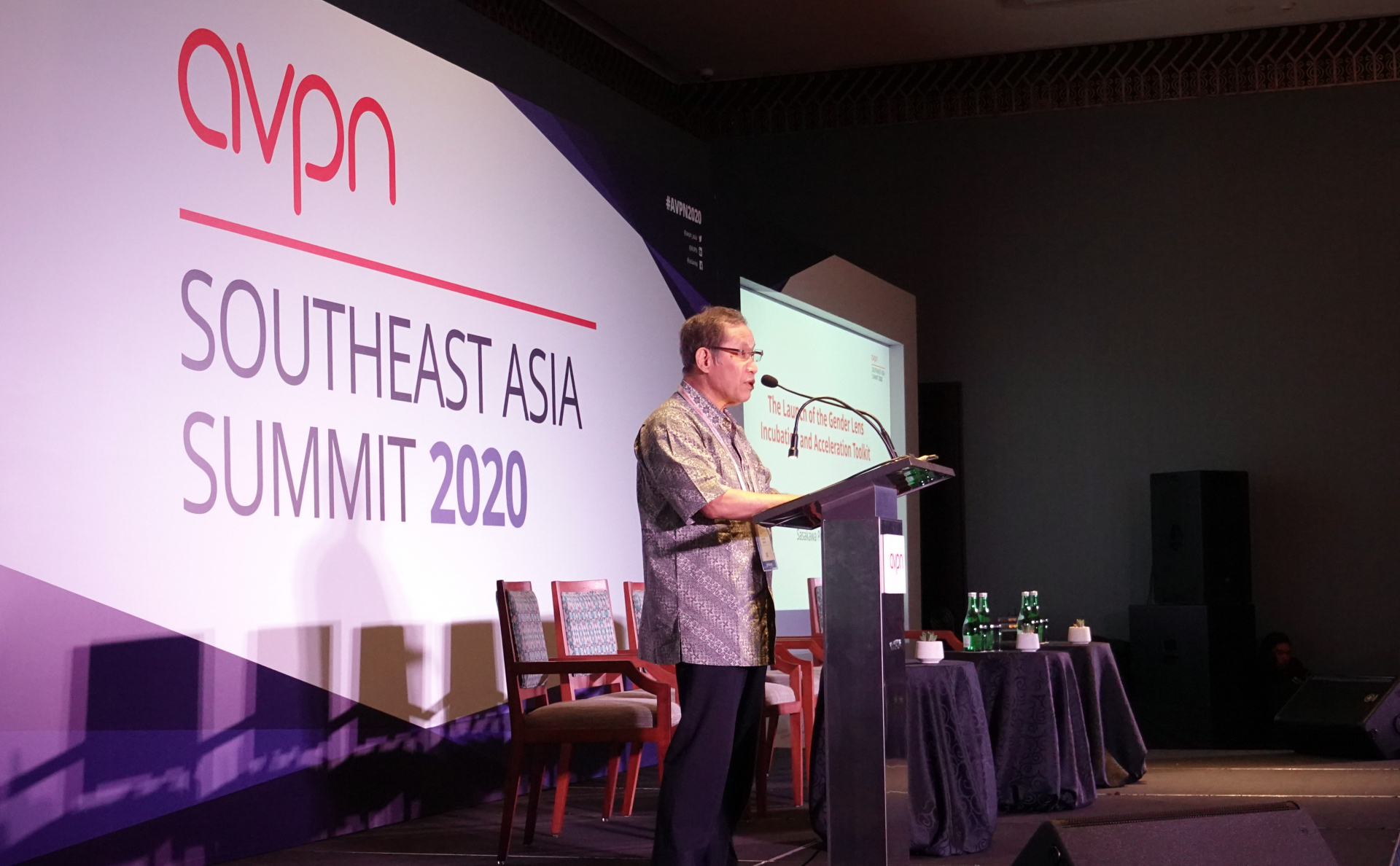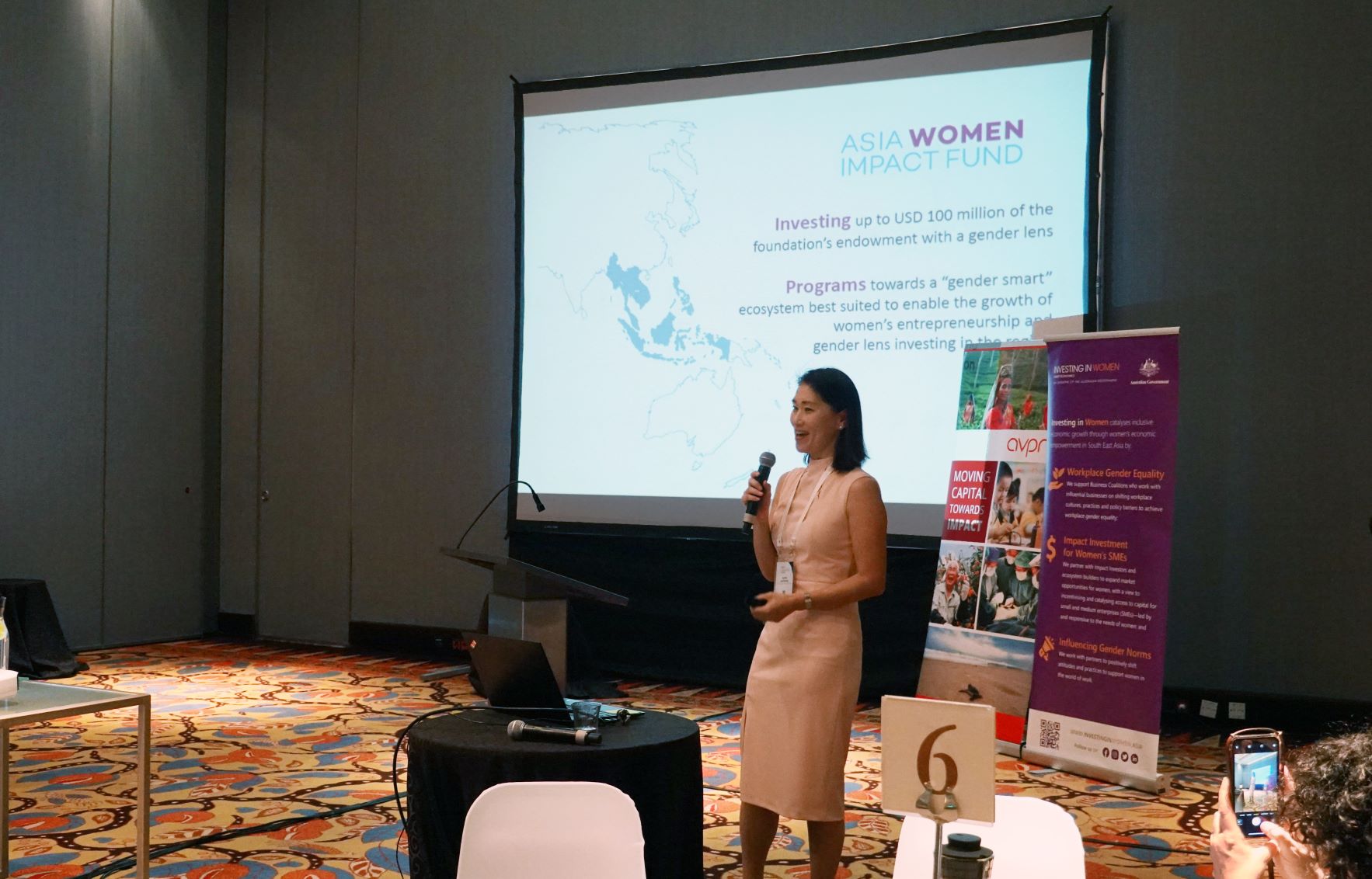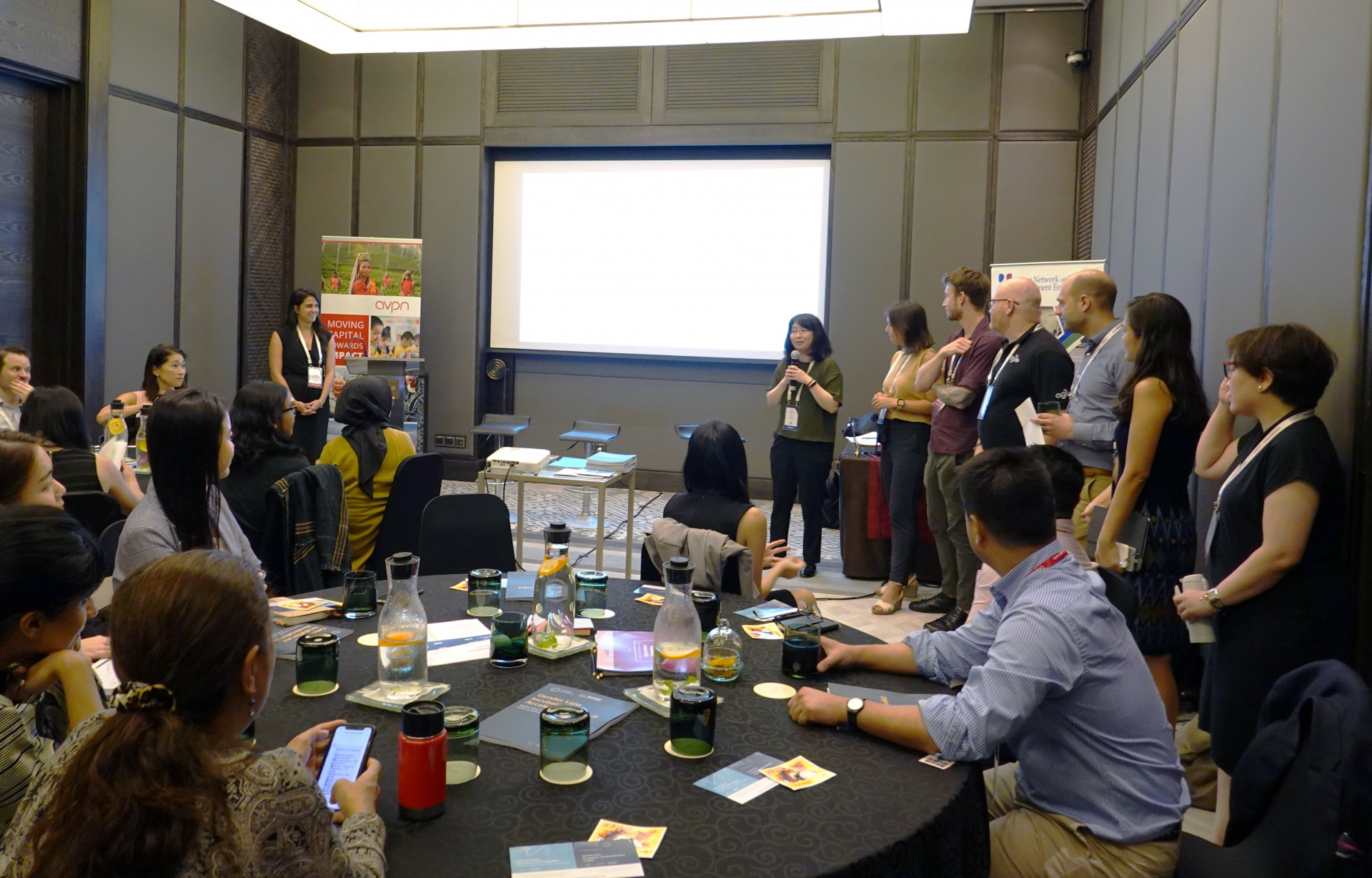The workshop continued with a discussion led by Audrey Jean-Baptiste, Regional Director and Gender Lead for ygap, and featuring two of the toolkit’s pilot partners with hands-on experience using the toolkit: Erika Tatad, Director at xchange in the Philippines, and Ian Jones, Executive Director of Agile Development Group based in Cambodia. Agile and xchange were two of the six intermediaries that participated in the pilot testing phase for the toolkit to contextualize and validate the materials.
For Ms. Tatad and her team, the GLIA toolkit pushed her organization to reassess how to incorporate gender issues in their work. “Even though we thought we were in a good place, we realized there was so much more we could do to be more deliberate,” she said, explaining that xchange is now working on creating an organizational statement on diversity and inclusion to guide the work they do at all levels. “[Using the GLIA toolkit] provided the space for us to talk about what we thought were simple issues, which are more complicated.”
Mr. Jones found that the toolkit and its interactive format made the materials and strategies easy to implement. The team at Agile used the toolkit to reassess the types of outreach materials they present to women in different areas of Cambodia, which Mr. Jones said allowed them to address the issue at an early stage before it grew into a larger problem down the road. “You can't deny that you're doing yourself or the community you serve a disservice by not just touching upon the toolkit lightly,” he said.
Looking to the future, the team at SPF is hoping to build upon the GLIA Toolkit framework with new topic-based modules to address specific challenges faced by women entrepreneurs such as unconscious bias, lack of negotiation skills, or confidence building, to ultimately close the gender gap in entrepreneurship. In addition, the team is in discussions about creating ways to measure the impact of the guidelines and strategies from the toolkit to help ESOs to track their progress as the resource continues to be applied in countries across Southeast Asia, with the hope of continuing to build momentum toward creating more inclusive and gender responsive ventures and a gender-smart entrepreneurial ecosystem across the region.
For more from the Gender Investment and Innovation Department, please visit the
program page.



